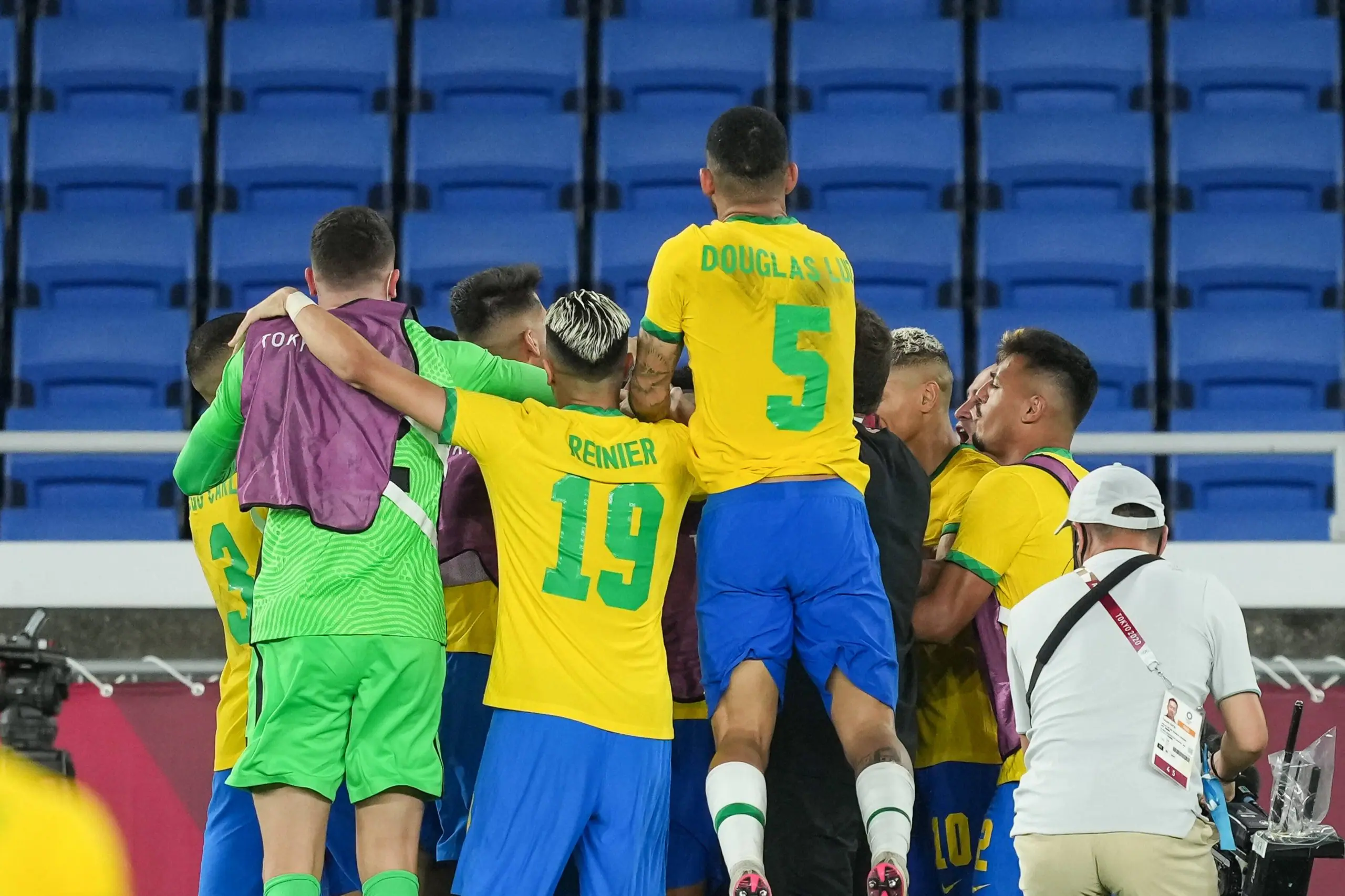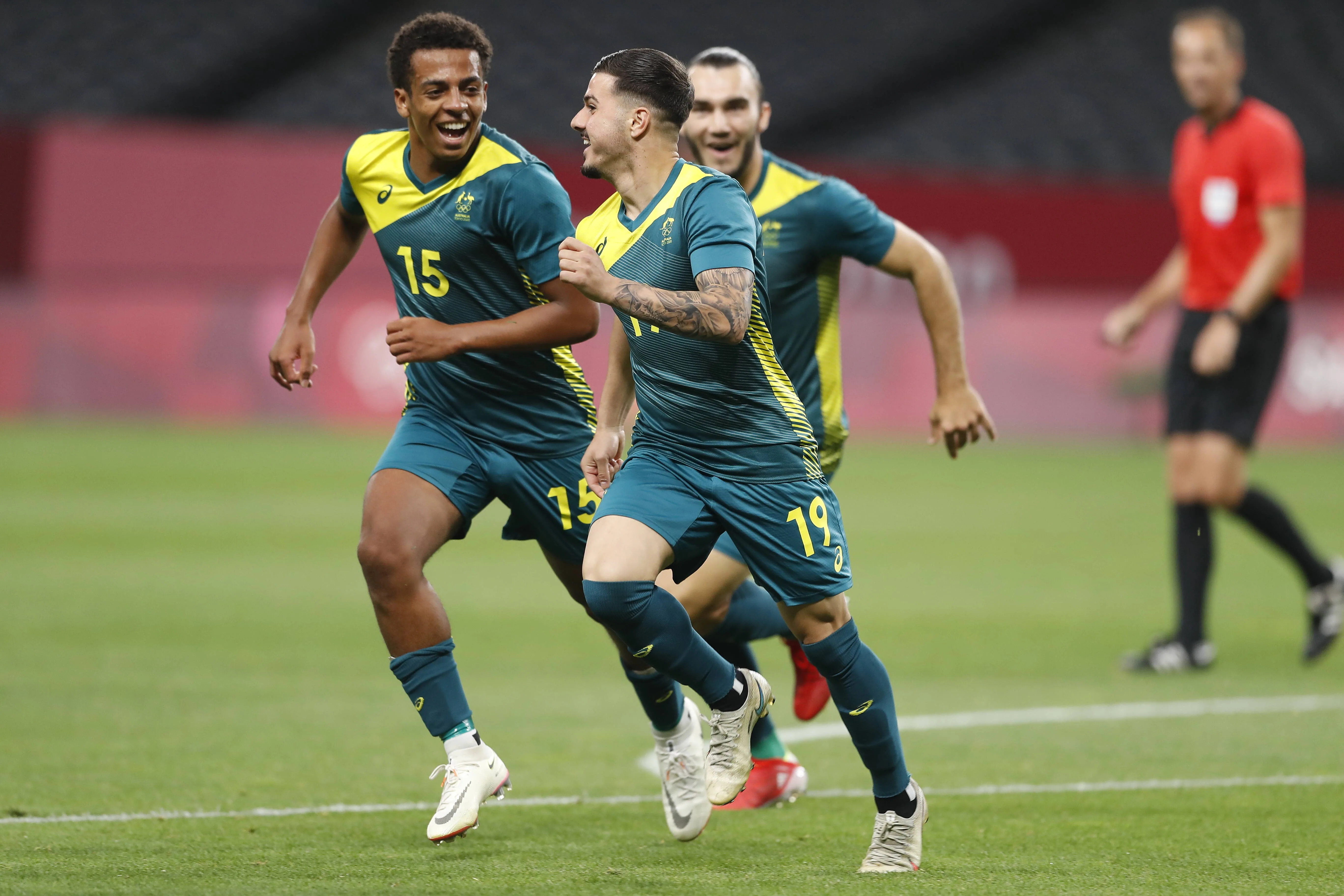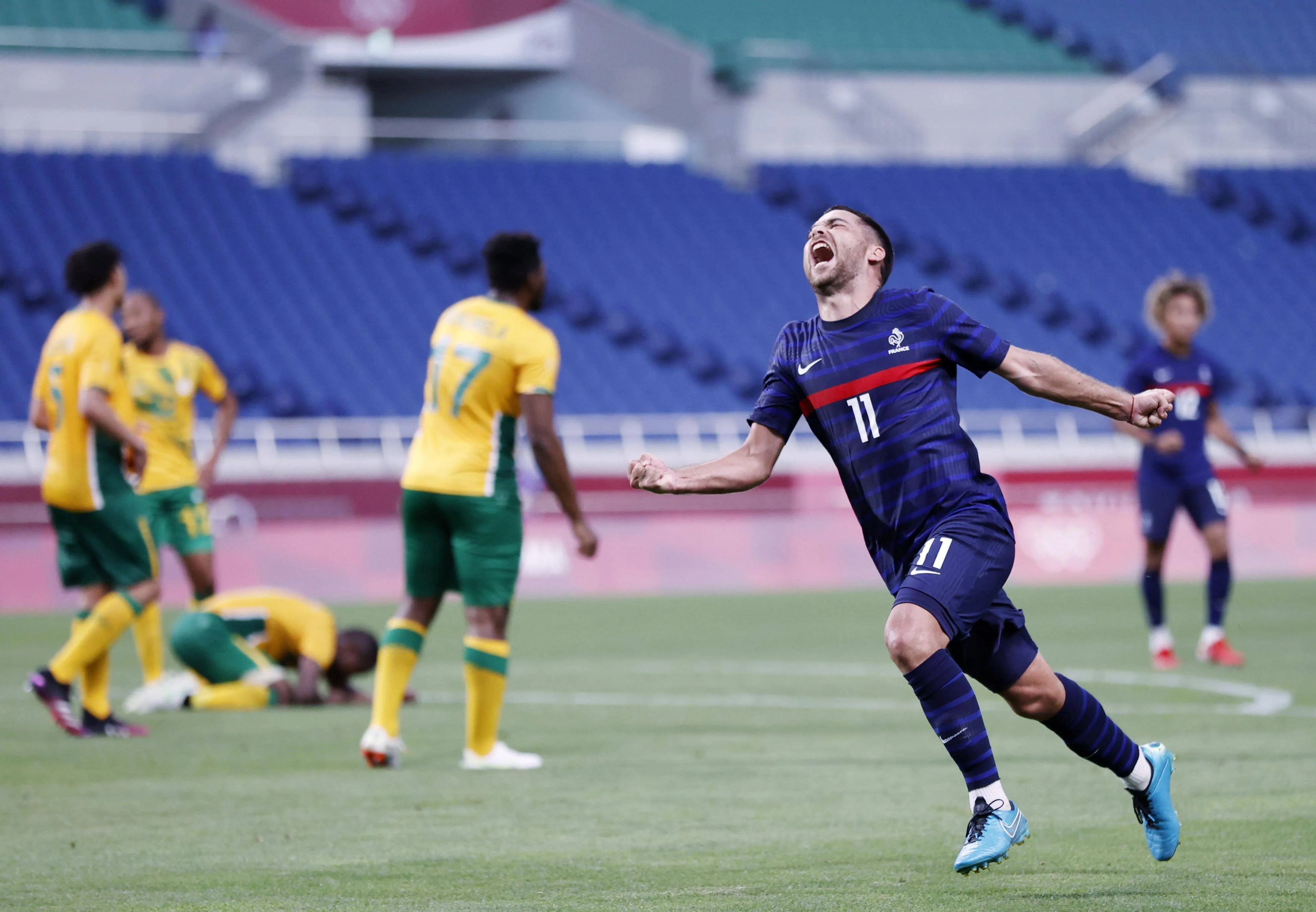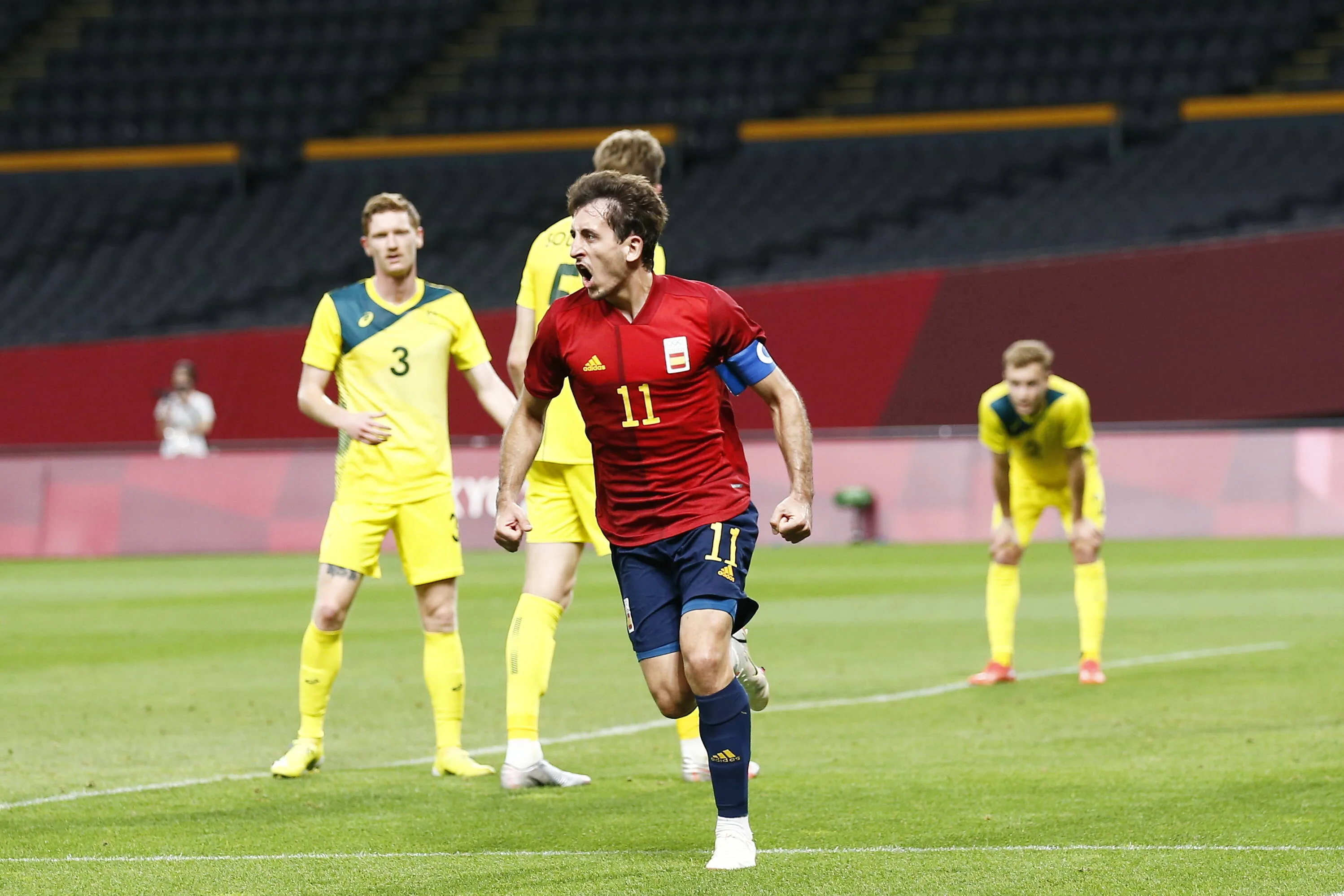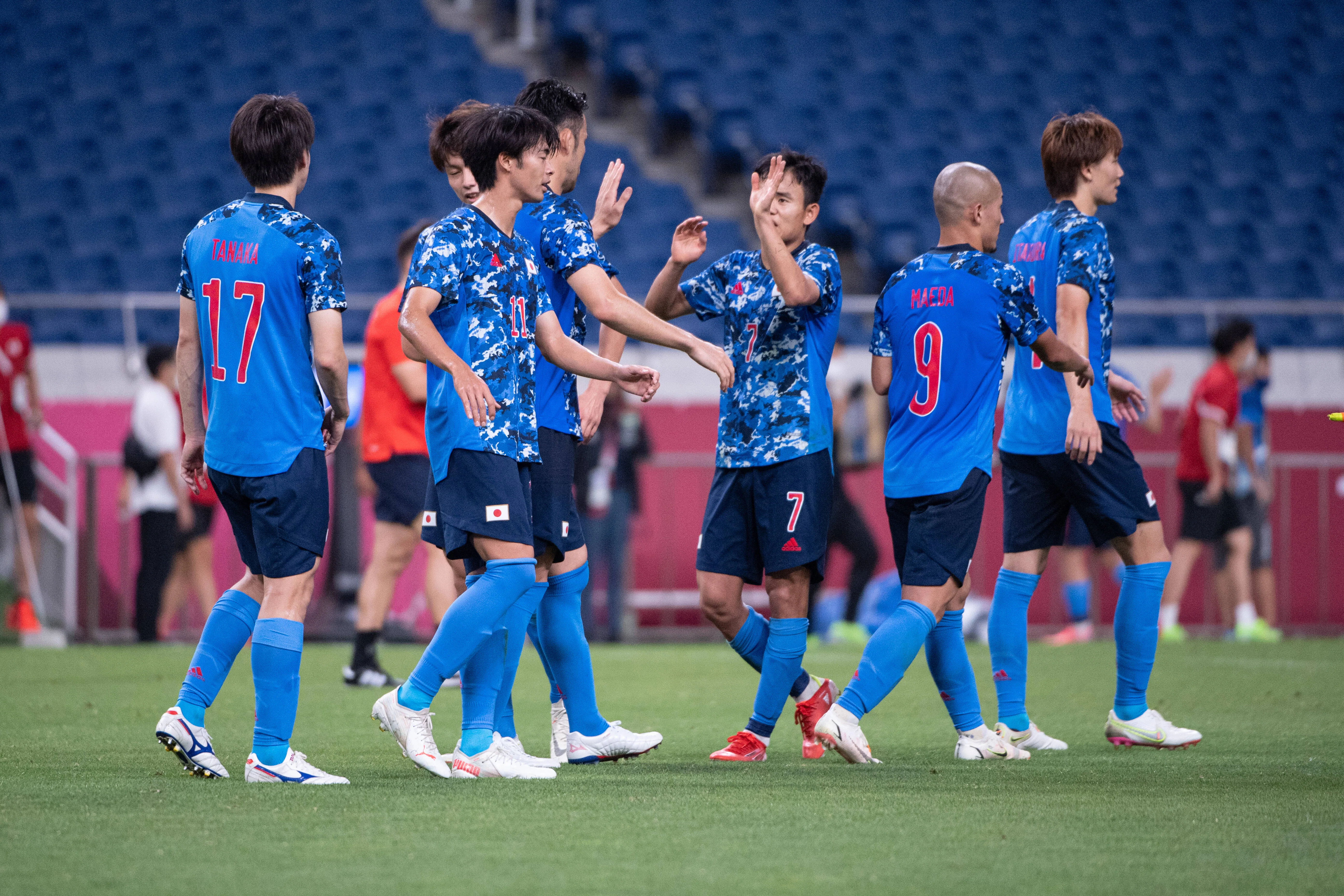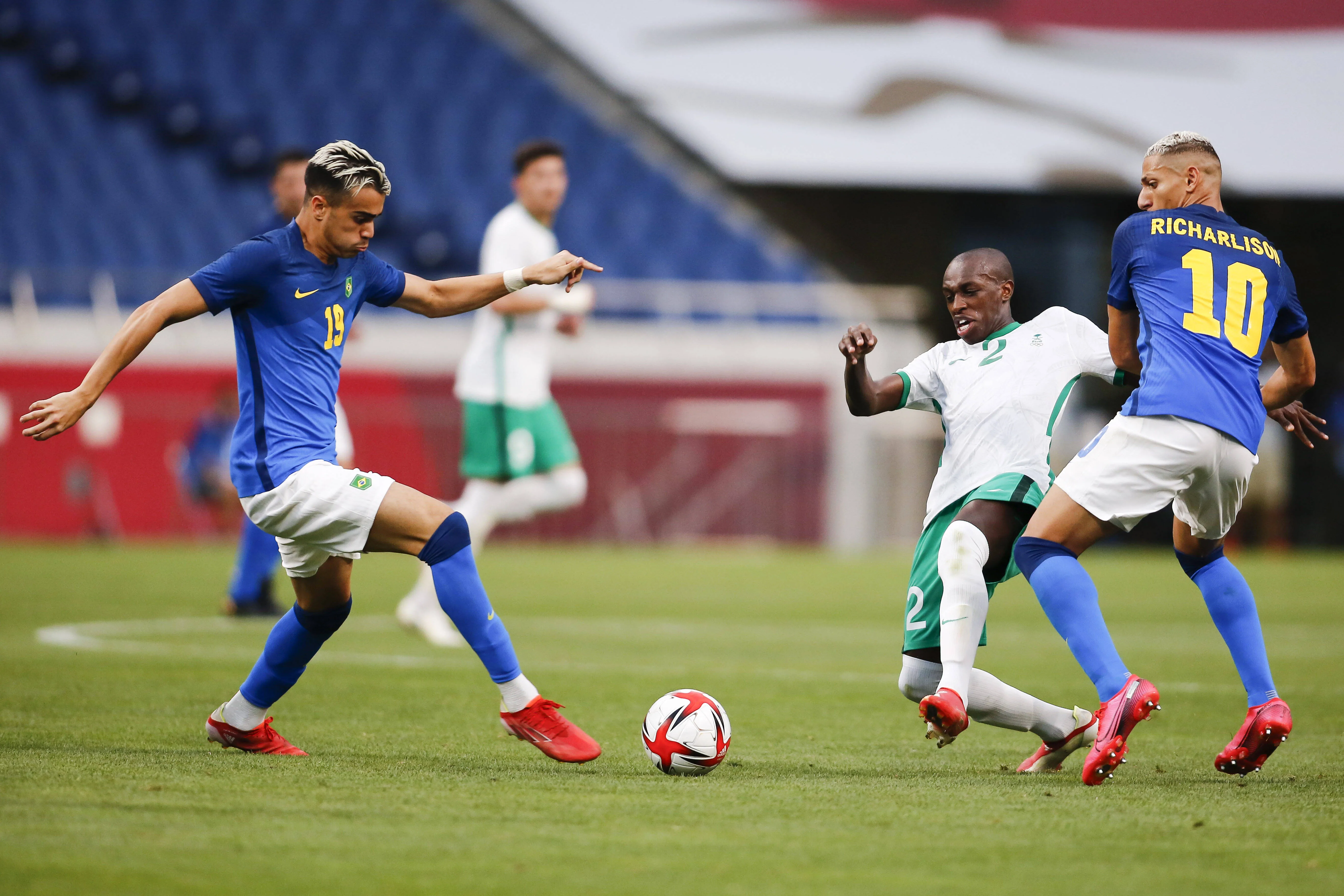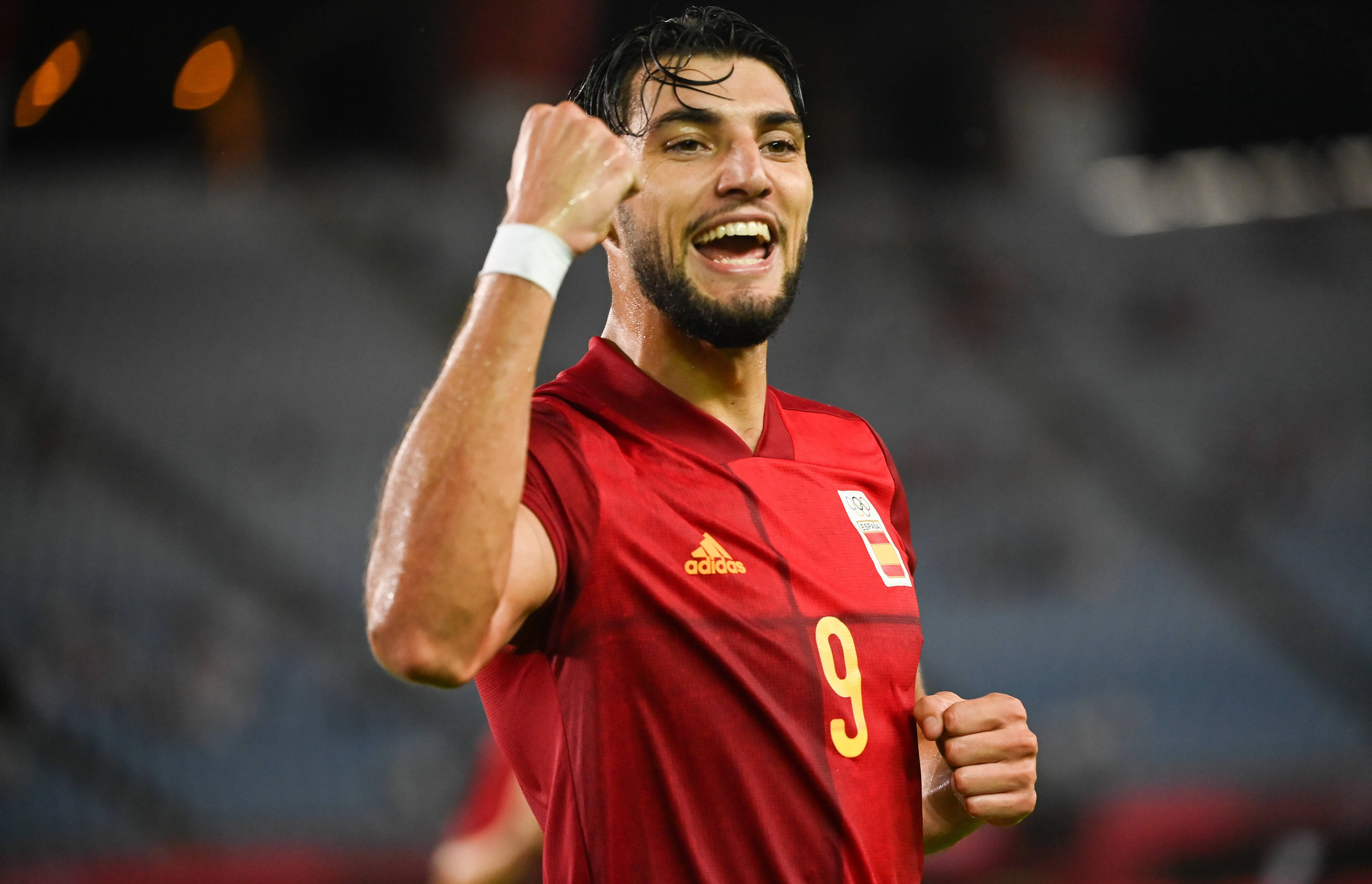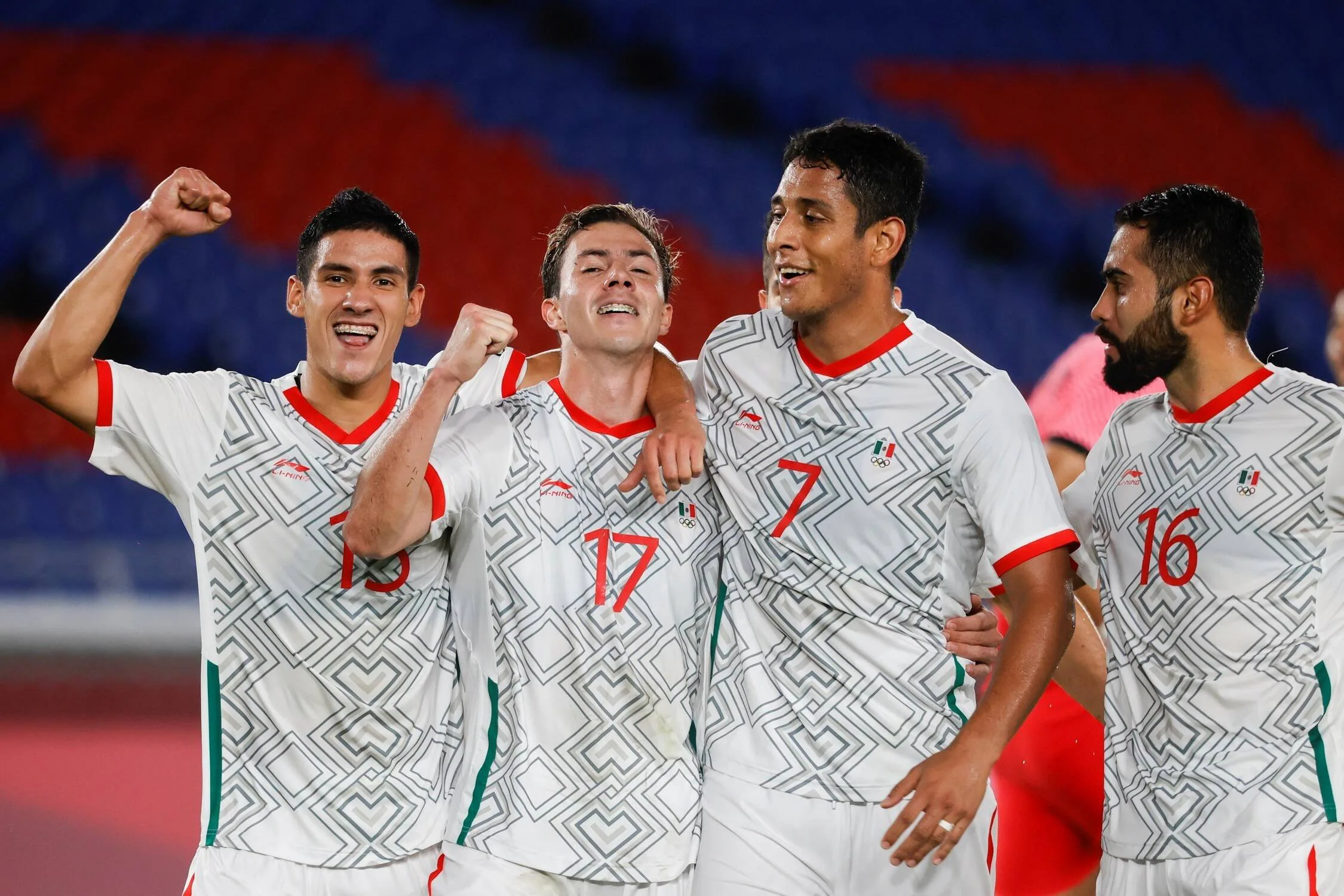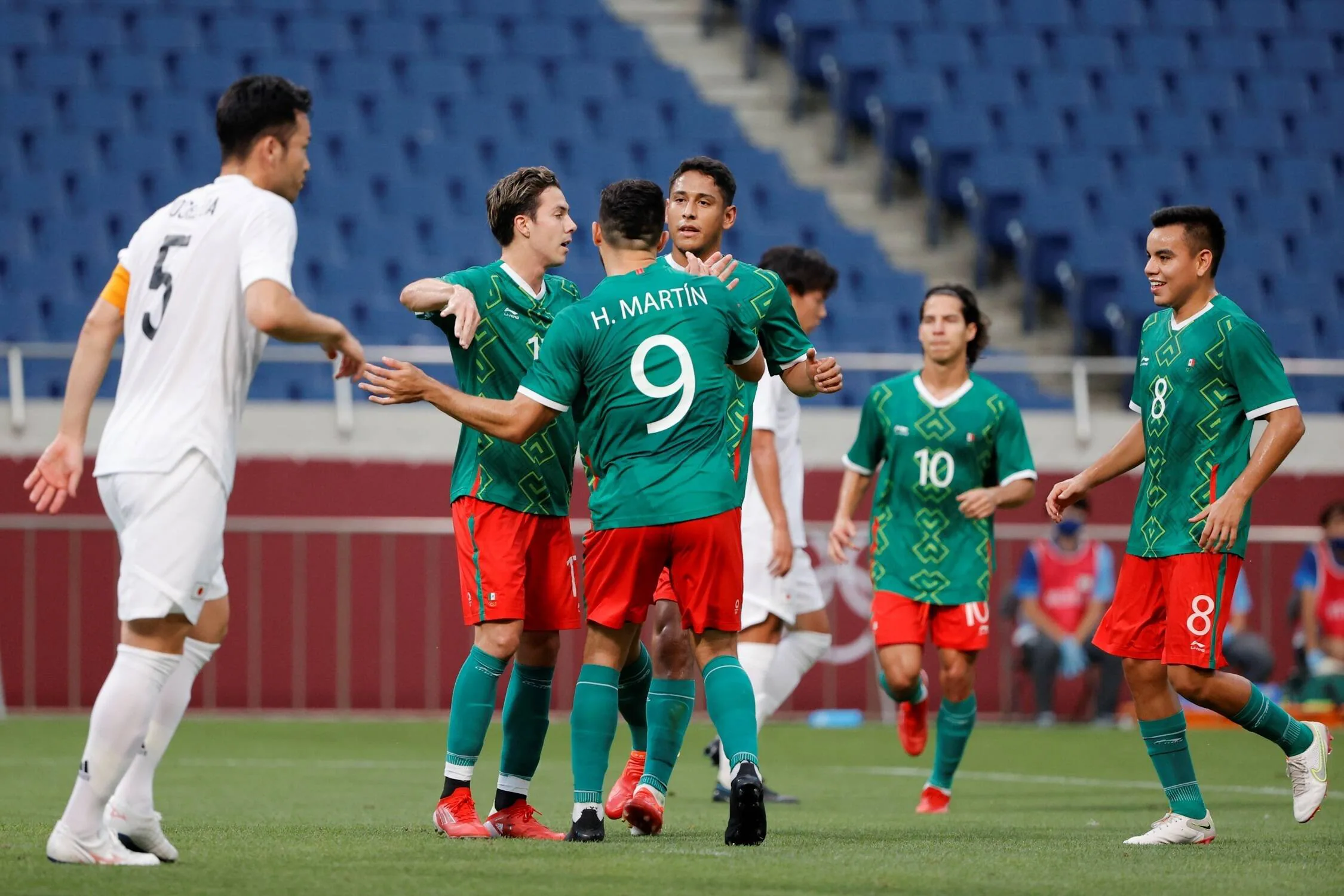Less than a couple of weeks after the end of the European Championships and Copa América, international football was spotted at the 2020 Tokyo Olympics (though the CONCACAF Gold Cup continued in North America), which were, again, postponed by a year.
The men’s football event only involved players born in or after 1997, with three exceptions allowed. Although most of the major footballing nations were involved, there were a fair few relatively inexperienced players on show.
With the 16 teams divided in four groups of four each from which the top two would progress, we were treated to a grand total of 32 matches over the course of 17 days, at the end of which Brazil emerged with the gold medal.
So, let us review all the men’s football action from the Olympics, going all the way back to July 22.
Matchday 1
Group A‘s opener involved Mexico and a ragtag France side that had been assembled very late on after the initial squad saw a number of star players pull out after being prevented to participate in the competition by their clubs, who wanted them at home for the pre-season.
Their opponents profited heavily from their disorder, as several misplaced passes in the build-up cost France four goals (scored by Alexis Vega, Sebastián Córdova, Uriel Antona and Eduardo Aguirre) while they only managed to respond with a penalty from André-Pierre Gignac.
Japan faced South Africa (who had lost a couple of players and days of training after positive COVID tests in their camp) in the other group game, which saw the hosts dominate for large periods of the match without any success.
Ultimately, a moment of individual brilliance from Takefusa Kubo with 20 minutes to spare settled the match.
Group B started with New Zealand facing South Korea, with the Kiwis taking a 1-0 victory thanks to Chris Wood’s goal in a tense affair. Romania and Honduras’ game was also decided by a solitary goal – an own goal from a corner by a Honduras player.
Group C started the tournament with Egypt meeting Spain, and although Luis de la Fuente’s side were unsurprisingly dominant in terms of possession and territory, they failed to translate that onto the scoresheet as the match ended in a 0-0 draw.
Elsewhere, Australia shocked Argentina with a powerful performance in a 2-0 win courtesy of goals from Lachlan Wales and Marco Tillo, with Francesco Ortega’s silly second booking just before half-time at 1-0 down proving very costly to the Argentinians.
Group D started with Côte d’Ivoire facing Saudi Arabia, where the African side looked very poor in the first half.
They were gifted an absolute shocker of an own goal to open the scoring, but a wonderful Salem Al-Dawsari shot made it level before half-time. Franck Kessié then provided the decisive goal just after the hour mark, sealing a win for his nation.
The blockbuster clash was the last one of the matchday, involving Brazil and a relatively unaltered Germany side that won the Under-21 Euros over a month ago.
They were in for a thrashing, though, as Richarlison powered the Seleção to a 3-0 lead with a first-half hat-trick, which also saw Matheus Cunha miss a penalty.
Nadiem Amiri pulled one back before the hour-mark, and even after Maximillian Arnold received a red card, Ragnar Ache’s 84th minute seemed to set up a grandstand finish.
The defending champions controlled it, though, as Paulinho’s stoppage-time goal made it 4-2 and sealed the victory.
Matchday 2
Group A kicked off with France vs South Africa, with Sylvan Ripoll’s men continuing to look really poor and disjointed. There were no goals in the first half but Bafana Bafana did miss a penalty just before half-time.
It all kicked off in the second period, as South Africa went ahead on three occasions through goals from Kobamelo Kodisang, Evidence Makgopa and Teboho Mokoena, but were pegged back on each occasion by André-Pierre Gignac, who completed his hat-trick with a spot-kick.
Though they probably did not deserve it, France even went on to get a winner through Téji Savanier’s stoppage-time winner, breaking South African hearts.
Japan met Mexico in the other group match, where a quick start powered by goals from Takefusa Kubo and Ritsu Doan placed the hosts firmly in control.
A red card to Johan Vásquez in the second half seemed to make life even easier for them, but an inadvertent cross-turned shot from a Roberto Alvarado free-kick led to a slightly more on-edge finish, which Japan survived with relative comfort.
Group B‘s first game involved Honduras and New Zealand, and it was a thriller too. Liberato Cacace scored a wondergoal within 10 minutes, but the Central Americans equalised just before half-time through Luis Palma.
Chris Wood restored the Kiwis’ lead quickly in the second half, but goals from Juan Carlos Obregón Jr and Rigoberto Rivas after some questionable defending delivered the win for Honduras.
Romania and South Korea featured in the following match, which was seemingly decided by a red card that was given to Ion Gheorghe.
The Asians netted four times through a Marius Marin own goal (which came before the sending off), Um Won-Sang and a Kang-In Lee brace.
Group C kicked us off again for matchday 2, with Egypt involved against Argentina. After a tense affair, the South Americans took the three points thanks to Facundo Medina’s solitary goal from a set-piece.
Spain and Australia’s match followed a similar pattern, with Mikel Oyarzabal’s header winning it for the European nation.
Group D‘s action began with a tasty clash featuring Brazil and Côte d’Ivoire, which quickly took an unexpected turn when Douglas Luiz saw red after a contentious VAR review for denying a clear goalscoring opportunity.
The two teams were closely matched still, and it was all to play for in the last 10 minutes when Kouassi Eboue picked up a second yellow card to reduce the match to a 10v10, but there were no goals to speak of.
Saudi Arabia rounded off the action with Germany, with Stefan Kuntz’s men taking the lead twice in the first half through Nadiem Amiri and Ragner Ache, but eventually getting pegged back on both occasions by Sami Al-Naji.
A red card to Amos Pieper in the 67th minute seemed to provide another twist in the tale, but the Germans retook the lead anyway through Felix Udokhai’s header, which was just about enough to seal a win.
Matchday 3
Group A‘s final matches were France vs Japan and South Africa vs Mexico, as we had simultaneous kick-offs for the final round of the group stage.
The hosts (who had already qualified with two wins in two) and Mexico coasted to 2-0 half-time leads thanks to goals from Takefusa Kubo and Hiroki Sakai, and Alexis Vega and Luís Romo respectively.
Mexico added a third in the second half with Henry Martín’s goal after Repo Malepe saw red for South Africa before making it a 10v10 with Carlos Rodríguez getting sent off, but Japan’s perfect record (bolstered by Koji Miyoshi and Daizen Maeda’s second-half strikes to make it 4-0 along with Randal Kolo Muani’s red card) meant that they were the group winners.
Group B saw Romania and New Zealand play out a relatively calm 0-0 draw, while South Korea thrashed Honduras 6-0 after two penalties and a red card with Hwang Ui-Jo netting a hat-trick, Won Du-jae adding one from the spot and Kim Jin-ya and Kang-in Lee striking once each from outside the box.
Those results saw the Asian side progress as group winners, with New Zealand following them thanks to a superior goal difference ahead of Romania.
Group C saw a defence-minded Australia meet Egypt along with Spain’s match against Argentina.
The Africans propelled themselves from the bottom of the group to a qualifying spot just before half-time through Ahmed Yasser Rayyan’s goal, while Spain took slightly longer to break the deadlock, but eventually succeeded in the second half thanks to captain Mikel Merino.
Egypt sealed the victory late on as Ammar Hamdy got on the scoresheet, but Spain made things more interesting by conceding to a set-piece goal scored by Tomás Belmonte.
Nonetheless, La Roja managed to hold on to a draw and progress as group winners, while Argentina ended up third on goal difference.
Group D started the action this time, with Germany facing Côte d’Ivoire and Saudi Arabia meeting Brazil, who had all but secured qualification.
They made things even better with Matheus Cunha opening the scoring by heading a corner home, but they were pegged back in similar fashion by Abdulelah Alamri’s goal.
It was all to play for in the other match, which got off to a cagey start as neither side seemed to want to risk too much.
67 minutes in, Benjamin Henrichs’ own goal made life even tougher for the Germans, meaning that Eduard Löwen free-kick goal could not save his country from elimination.
Meanwhile, a Richarlison brace against Saudi Arabia saw Brazil go through as group winners ahead of Côte d’Ivoire.
Quarter-finals
Spain vs Côte d’Ivoire was the first direct knockout match of the tournament, and it started just as you would expect, with Spain dominating possession.
However, in typical fashion, La Roja conceded to the very first shot of the match from Eric Bailly in the 10th minute but were quick to recuperate and find an equaliser through Dani Olmo well before half-time.
Luis de la Fuente’s men had the clear majority of chances in the second half, but they conceded again to Max Gradel with only stoppage time remaining.
Some abject defending on Bailly’s part thereafter, though, allowed Rafa Mir to equalise, meaning that we were off to extra time.
Bailly was at the forefront of the action again as he was penalised for handball in the box, allowing Mikel Oyarzabal to put Spain in front from the spot.
Rafa Mir then completed a hat-trick in the second half of extra time to seal a 5-2 victory for his side.
Japan vs New Zealand was the second quarter-final kickoff which saw the hosts dominate possession and chances but fail to apply the all-important finishing touch, so extra time was in order once again.
No goals there meant that penalties were required to decide a winner, which happened quickly as Japan remained faultless while Liberato Cacace had his effort saved and Clayton Lewis missed high.
Brazil vs Egypt went just as predicted, as Brazil absolutely peppered their opponents’ goal. After being denied by the keeper on several occasions, they took the lead through Matheus Cunha before half-time.
The Seleção looked most likely to score again, and although they failed to do that, the solitary goal proved enough to book a semi-final berth.
South Korea vs Mexico was the last quarter-final, which had goals galore. It began with Henry Martín giving the Central American nation the lead within 12 minutes, after which Dong-Gyeong Lee quickly equalised in spectacular fashion, but Luís Romo and Sebastián Córdova (from the penalty spot) put the Mexicans in a commanding position at half-time.
Dong-Gyeong Lee scored another belter early on in the second half, but Martín quickly restored his nation’s two-goal cushion before Córdova found the back of the net with a sensational strike, Érick Aguirre added one more and Du-Jae Won got some consolation to seal a 6-3 win for Mexico.
Semi-finals
Mexico vs Brazil got us underway for the last four stage, in an exciting end-to-end battle littered with set-pieces being thrown around left, right and centre.
Brazil came closest to scoring in the 90 minutes when Richarlison’s header hit the inside of the post and somehow stayed out before he messed up the follow-up cut-back, so the 30 minutes of extra time were back.
With the score still locked at 0-0, penalties were needed to decide a winner. Mexico failed to hit the back of their net with their first two attempts while Brazil maintained a 100% record, so the defending champions had the chance to vie for another gold medal.
Japan vs Spain was the other semi-final. It was a cagey tactical affair where Spain controlled most of the possession, but the hosts always posed a threat on the break.
Even then, the match was starved of goals in normal time, but for a change, there was a winner in the second half of extra time as Marco Asensio found the back of the net with a smart finish, taking Spain to the gold medal match.
Third-Place Playoff
Mexico vs Japan was the bronze medal decider, which got off to a flying start for El Tri as they took a two-goal lead in the first half through Sebastián Córdova’s spot-kick and Johan Vázquez’s header.
They remained in control throughout, with Alexis Vega nodding in another set-piece early in the second period to round off a comfortable 3-1 win as Kaoru Mitoma pulled one back for the hosts late on.
Final
Brazil vs Spain was the big one, and it did not disappoint.
The defending champions probably were not the better side in the first half, but they had by far the best chance to take the lead after Unai Simón came out to punch a set-piece delivery away but only got a bit of Matheus Cunha.
Richarlison, the top-scorer in the tournament, stepped up to the penalty, but he skied it.
Cunha took matters into his own hands just before half-time, though, as he opened the scoring after some poor defending in the box on Spain’s part.
Luis de la Fuente’s side didn’t take too long to equalise after a couple of half-time substitutions as Mikel Oyarzabal turned up at the back post with a sublime finish to Carlos Soler’s cross.
Both sides struck the woodwork three times altogether in normal time, but no more goals meant that we had 30 bonus minutes of Olympics football action.
Another super-sub made the difference, but this time it was for Brazil as Malcolm scored a winner in the second period of extra time.
That meant that the Seleção achieved back-to-back Olympic successes.
Add Sportslens to your Google News Feed!
